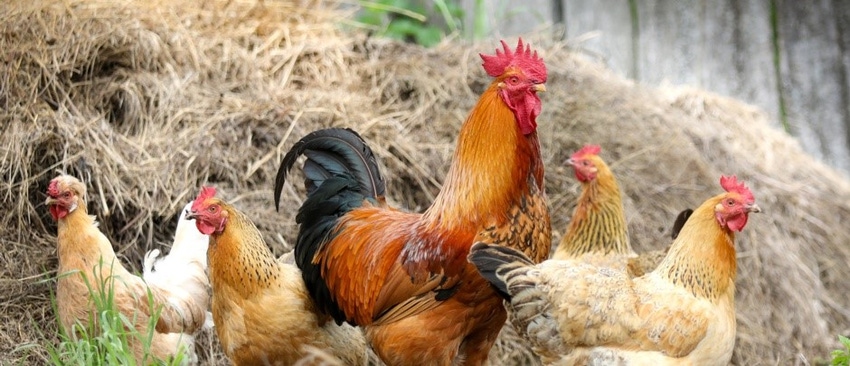Natural genetic variation in immune genes may affect ability of chickens to fight of viruses.
April 9, 2019

A collaborative study led by The Pirbright Institute and Imperial College London in the U.K. has identified variations in the genes of chickens' antiviral proteins, called IFITMs, that could affect their ability to fight viral infections.
This is the first study to look at the natural genetic variation of IFITM genes across breeds, which could be used to inform commercial poultry breeding, according to an announcement from the U.K.'s Biotechnology & Biosciences Research Council (BBSRC).
Published in BMC Genomics, the team’s research found that there were naturally occurring differences in IFITM genes among four different groups of chickens: commercial, inbred, indigenous and rare breed. There were genetic differences not only among geographically distant groups but also within groups of related chickens, the researchers said.
Some of these variations may alter the IFITM proteins, suggesting that they could have functional consequences and may affect the ability of chickens to fight different viruses, the announcement said.
“Now that we have identified these genetic differences, we can work towards understanding how they affect the birds’ responses to viral infections. If particular variations are found to provide extra protection, they could be selected for by commercial breeding programs to help make chickens more resistant to economically important diseases,” Dr. Mark Fife, head of the genetics and genomics group at Pirbright, said.
IFITMs are proteins found in many animals, including people, that are activated by the immune system to stop viruses from entering and replicating in host cells. Changes in the genes of IFITM proteins can alter their activity and location, which has an effect on their ability to restrict viral infections, the researchers explained.
Increasing the natural resistance of poultry to viral infections can supplement other ways of protecting food supplies, such as antibiotics and vaccines. This, in turn, will help reduce industry losses and feed the growing global demand for poultry products, the announcement said.
The Pirbright Institute -- one of eight BBSRC strategically funded institutes -- delivers innovative, world-class bioscience research and training.
Source: BBSRC, which is solely responsible for the information provided and is wholly owned by the source. Informa Business Media and all its subsidiaries are not responsible for any of the content contained in this information asset.
You May Also Like


.png?width=300&auto=webp&quality=80&disable=upscale)
